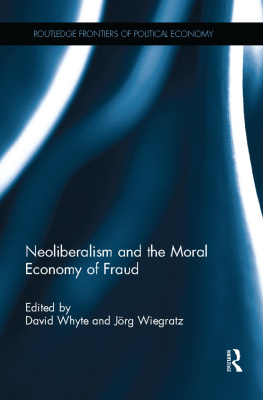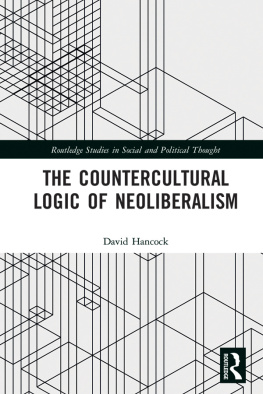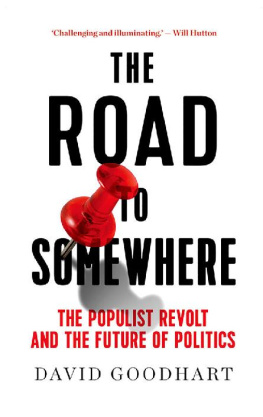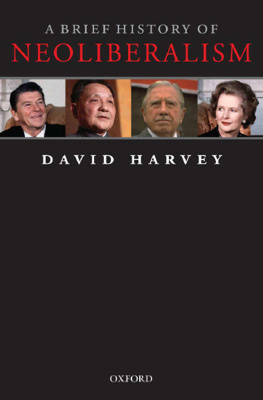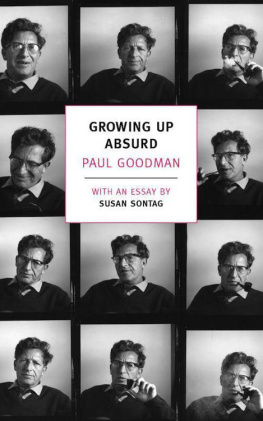Acknowledgments
I am very grateful to the individuals and audiences who have supported this work. Notable among these are Kevin McDonough and the students and faculty at the Department of Integrated Studies at McGill University, and Chris Higgins and the students, faculty and audiences at the Department of Education, Organization and Leadership, the Center for Advanced Study, and the Unit for Criticism and Interpretive Theory at the University of Illinois at Urbana-Champaign. This work was also supported indirectly through the research portion of my employment duties at the University of Delaware and I am grateful to my home institutions continuing commitment to such scholarshipsomething that is not to be taken for granted. I received tremendous help in the form of manuscript commentary from numerous friends and colleagues, including Aideen Murphy, Roxanne Desforges, Chris Phillips, Mike Watson, Quentin Wheeler-Bell, Terri Wilson, Carolyn Cohen, Dana Simone, Emile Bosjean, Matthew Charles, Marcia Blacker, Marion Monguillon, Marianna Papastefanou, and Alpesh Maisuria. Any remaining errors are of course mine alone despite these individuals valiant efforts to save me from them. At Zero Books I am very happy to thank John Hunt, Ashley Frawley, Nick Welch, Stuart Davies, Trevor Greenfield, Doug Lain and John Romans for their help at various stages. It was a pleasure to work with them.

Zero Books
CULTURE, SOCIETY & POLITICS
Contemporary culture has eliminated the concept and public figure of the intellectual. A cretinous anti-intellectualism presides, cheer-led by hacks in the pay of multinational corporations who reassure their bored readers that there is no need to rouse themselves from their stupor. Zer0 Books knows that another kind of discourse intellectual without being academic, popular without being populist is not only possible: it is already flourishing. Zer0 is convinced that in the unthinking, blandly consensual culture in which we live, critical and engaged theoretical reflection is more important than ever before.
If you have enjoyed this book, why not tell other readers by posting a review on your preferred book site.
Recent bestsellers from Zero Books are:
In the Dust of This Planet
Horror of Philosophy vol. 1
Eugene Thacker
In the first of a series of three books on the Horror of Philosophy, In the Dust of This Planet offers the genre of horror as a way of thinking about the unthinkable.
Paperback: 978-1-84694-676-9 ebook: 978-1-78099-010-1
Capitalist Realism
Is there no alternative?
Mark Fisher
An analysis of the ways in which capitalism has presented itself as the only realistic political-economic system.
Paperback: 978-1-84694-317-1 ebook: 978-1-78099-734-6
Rebel Rebel
Chris OLeary
David Bowie: every single song. Everything you want to know, everything you didnt know.
Paperback: 978-1-78099-244-0 ebook: 978-1-78099-713-1
Cartographies of the Absolute
Alberto Toscano, Jeff Kinkle
An aesthetics of the economy for the twenty-first century.
Paperback: 978-1-78099-275-4 ebook: 978-1-78279-973-3
Malign Velocities
Accelerationism and Capitalism
Benjamin Noys
Long listed for the Bread and Roses Prize 2015, Malign Velocities argues against the need for speed, tracking acceleration as the symptom of the ongoing crises of capitalism.
Paperback: 978-1-78279-300-7 ebook: 978-1-78279-299-4
Meat Market
Female Flesh under Capitalism
Laurie Penny
A feminist dissection of womens bodies as the fleshy fulcrum of capitalist cannibalism, whereby women are both consumers and consumed.
Paperback: 978-1-84694-521-2 ebook: 978-1-84694-782-7
Poor but Sexy
Culture Clashes in Europe East and West
Agata Pyzik
How the East stayed East and the West stayed West.
Paperback: 978-1-78099-394-2 ebook: 978-1-78099-395-9
Romeo and Juliet in Palestine
Teaching Under Occupation
Tom Sperlinger
Life in the West Bank, the nature of pedagogy and the role of a university under occupation.
Paperback: 978-1-78279-637-4 ebook: 978-1-78279-636-7
Sweetening the Pill
or How We Got Hooked on Hormonal Birth Control
Holly Grigg-Spall
Has contraception liberated or oppressed women? Sweetening the Pill breaks the silence on the dark side of hormonal contraception.
Paperback: 978-1-78099-607-3 ebook: 978-1-78099-608-0
Why Are We The Good Guys?
Reclaiming your Mind from the Delusions of Propaganda
David Cromwell
A provocative challenge to the standard ideology that Western power is a benevolent force in the world.
Paperback: 978-1-78099-365-2 ebook: 978-1-78099-366-9
Readers of ebooks can buy or view any of these bestsellers by clicking on the live link in the title. Most titles are published in paperback and as an ebook. Paperbacks are available in traditional bookshops. Both print and ebook formats are available online.
Find more titles and sign up to our readers newsletter at http://www.johnhuntpublishing.com/culture-and-politics
Follow us on Facebook at https://www.facebook.com/ZeroBooks
and Twitter at https://twitter.com/Zer0Books
Chapter 1
Identity proliferation
Men and women look for groups to which they can belong, certainly and forever, in a world in which all else is moving and shifting, in which nothing else is certain.
Eric Hobsbawm (1998)
Respectable creatures: From autonomy to automation
Kants formula of humanity enjoins rational beings to treat one another never merely as means but always also as ends in themselves: Act in such a way that you treat humanity, whether in your own person or in any other person, always at the same time as an end, never merely as a means. Correlatively, human beings command dignity, respect and autonomy, aspects of a core Enlightenment moral attitude which, however much it falls short in practice, is associated with hallmark liberal political norms such as equal treatment under the law, civil liberties, religious tolerance, non-exploitation and personal autonomythe latter in areas as varied as limits on surveillance and reproductive rights. The old Marxist dialectical view is that these bourgeois freedoms, while welcome and necessary, were fated eventually to be superseded by allegedly superior post-capitalist forms of positive freedom arising from more evolved norms of production and distribution.
These successor norms were never quite specified, however. As per Marxist materialism, the implied idea is that the animating ideals of human interrelation would take care of themselves; phenomena such as alienation and wage exploitation would diminish to a vanishing point as a function of salutary alterations in real economic conditions, either by evolutionary or revolutionary means. Yet the normative underpinnings of the transition from exploitative wage relations were never really adequately theorized. In cruder circles it was even set aside as a depoliticizing and hence distracting bourgeois concern. Yet it is famously, even notoriously, true that, despite its pretenses to objective science and denunciations of moralism, Marxism (including Engels) was driven by an animus toward what it perceived as injustice and human suffering. And it does not seem hugely mysterious to find in their denunciations of the theft of workers surplus labor and the desiccating exploitation of the vampire Capital a tacit allegiance to the broad Kantian formula of humanity and its injunction against treating people as mere means. Why else would one be bothered by workers sorry fates?


